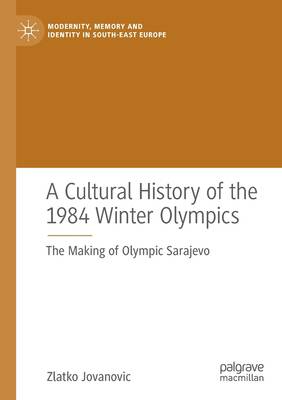
- Retrait gratuit dans votre magasin Club
- 7.000.000 titres dans notre catalogue
- Payer en toute sécurité
- Toujours un magasin près de chez vous
- Retrait gratuit dans votre magasin Club
- 7.000.000 titres dans notre catalogue
- Payer en toute sécurité
- Toujours un magasin près de chez vous
Description
This book examines the 1984 Sarajevo Winter Olympic Games. It tells the story of the extensive infrastructural transformation of the city and its changing global image in relation to hosting of the Games. Reviewing different cultural representations of Sarajevo in the period from the 1960s to the 1980s, the book explores how the promotion of the city as a future global tourist centre resulted in an increased awareness among its populace of the city's cultural particularities. The analysis reveals how the process of modernisation relating to hosting of the Olympics provided an opportunity to re-imagine the city as a particularly environmentally progressive city. Placed within the field of studies of late socialism, the book offers important insights into Yugoslav society during the period, including those relating to the country's unique geopolitical position and its nationalities policies.
Spécifications
Parties prenantes
- Auteur(s) :
- Editeur:
Contenu
- Nombre de pages :
- 265
- Langue:
- Anglais
- Collection :
Caractéristiques
- EAN:
- 9783030766009
- Date de parution :
- 21-08-22
- Format:
- Livre broché
- Format numérique:
- Trade paperback (VS)
- Dimensions :
- 148 mm x 210 mm
- Poids :
- 340 g







